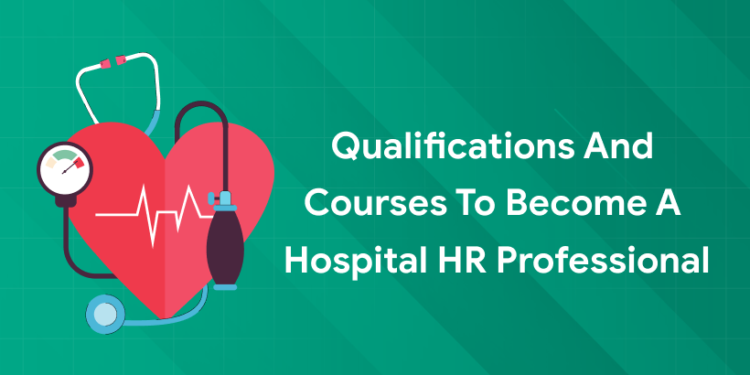Table of Contents
Key Takeaways:
- A bachelor’s degree in HR, business, or healthcare is the minimum requirement for hospital HR roles.
- Entri’s Hospital Administration Course offers practical training, placement support, and a wide range of skills relevant to hospital HR.
- Certifications like CHHR, SHRM, and PHR/SPHR enhance your profile and career prospects.
- Essential skills include communication, leadership, problem-solving, and knowledge of healthcare regulations.
- Hospital HR professionals play a vital role in recruitment, training, compliance, and staff welfare.
Introduction
Are you passionate about healthcare and people management? Do you dream of making a real difference in hospitals by ensuring staff are happy, patients are cared for, and operations run smoothly? If so, a career as a Hospital HR Professional might be your perfect fit. In today’s fast-paced healthcare world, hospitals need skilled HR professionals who can handle everything from recruitment to compliance, employee engagement, and strategic planning. Whether you’re a fresh graduate or looking to switch careers, this guide will walk you through the qualifications, courses, and skills you need to thrive in hospital HR.
With healthcare in India growing rapidly—Kerala alone allocated over ₹10,431 crore for health in 2025-26—there’s never been a better time to step into hospital administration and HR roles. The demand for qualified HR professionals in hospitals is rising, and with the right education and certifications, you can secure a rewarding career that makes a real impact.
People also read: The Difference Between General HR and Hospital HR Management
What Qualifications Do You Need to Become a Hospital HR Professional?
1: What is the primary role of a hospital administrator?
To become a Hospital HR Professional, you typically need a bachelor’s degree in Human Resource Management, Business Administration, Healthcare Administration, Psychology, or Public Administration. For advanced roles, a master’s degree (like an MBA in HR or Healthcare Administration) is highly recommended.
- Entry-level positions often require a bachelor’s degree, while senior roles may demand a master’s degree or relevant certifications.
- Many hospitals prefer candidates with healthcare or hospital administration experience, but it’s not always mandatory.
- Soft skills like communication, empathy, and problem-solving are just as important as formal education.
- Some hospitals also value candidates with knowledge of healthcare regulations and compliance, which can be gained through specialized courses or on-the-job training.
Also read: Hospital HR Executive Salary in Kerala
Hospital Administration Course with Assured Career Growth
Hospital Administration Course by Entri App: Master essential healthcare management skills, gain certification, and secure top roles in leading hospitals
Join Now!What Are the Best Courses for Hospital HR Professionals?
The best courses include specialized diplomas and certifications in Hospital Administration, Healthcare Management, and HR. Entri’s Hospital Administration Course is a top choice for those seeking practical training and placement support.
- Entri’s Hospital Administration Course (Kerala):
- Duration: 8 months (4 months classroom + 3 months on-the-job training + 1 month revision)
- Eligibility: Any graduate
- Skills Covered: Leadership, communication, strategic planning, financial management, HR management, regulatory knowledge, IT, risk management, quality improvement, marketing, and data analysis
- Placement Assistance: Entri provides placement support in frontline healthcare organizations, including roles in HR, finance, operations, and more
- Unique Features: Live sessions, expert trainers, interview training, profile building, spoken English, and hospital software training
- Job Roles: Hospital Administrator, HR Department, Front Office, Operations, Marketing, Finance, Quality, and more
- MBA in Healthcare Administration
- MBA in Hospital Management
- Certificate in Hospital Administration
- PG Diploma in Hospital Management
What Certifications Boost Your Hospital HR Career?
Certifications like CHHR (Certified in Healthcare Human Resources), SHRM-CP/SHRM-SCP, and PHR/SPHR are highly valued in hospital HR roles.
- CHHR is specifically designed for healthcare HR professionals and is recognized by the American Hospital Association.
- SHRM and HRCI certifications are globally respected and can open doors to leadership roles.
- Specialized diplomas in hospital administration or healthcare management also add value.
What Skills Are Essential for Hospital HR Professionals?
Hospital HR professionals need a blend of technical, interpersonal, and strategic skills to succeed in today’s dynamic healthcare environment. These include communication, leadership, problem-solving, empathy, digital fluency, and knowledge of healthcare regulations.
Hospital HR professionals must be adept at managing complex human dynamics, regulatory compliance, and operational challenges. Here’s a detailed breakdown of the most essential skills:
-
Communication Skills:
Effective communication is vital for interacting with staff, patients, and management. HR professionals must be able to convey policies clearly, conduct interviews, resolve conflicts, and deliver presentations. Strong written and verbal communication ensures transparency and trust within the organization.
-
Leadership and Teamwork:
Leading teams, motivating staff, and fostering collaboration are crucial for maintaining a positive workplace culture. HR professionals must inspire others, manage diverse teams, and work cross-functionally to achieve organizational goals.
-
Problem-Solving and Decision-Making:
HR professionals often face complex workplace issues, from staffing shortages to employee grievances. The ability to analyze situations, make informed decisions, and implement effective solutions is essential for smooth hospital operations.
-
Empathy and Emotional Intelligence:
Understanding and responding to the emotional needs of staff is critical in healthcare settings. Empathy helps HR professionals build trust, support employee well-being, and manage sensitive situations with compassion.
Also read: Hospital HR Executive Interview Questions and Answers
-
Knowledge of Healthcare Regulations:
Hospital HR professionals must be well-versed in labor laws, healthcare compliance, and ethical standards. Staying updated on regulatory changes ensures the hospital remains compliant and avoids legal risks.
-
Digital and Data Literacy:
Modern HR relies heavily on technology and data analytics. Proficiency in HRIS (Human Resource Information Systems), data-driven reporting, and digital tools enables HR professionals to streamline processes, track performance, and make strategic decisions.
-
Conflict Resolution and Mediation:
Managing workplace disputes and mediating conflicts is a core responsibility. HR professionals must be impartial, listen actively, and negotiate fair resolutions that align with hospital policies.
-
Change Management:
Hospitals frequently undergo organizational changes, such as restructuring or adopting new technologies. HR professionals must guide staff through transitions, manage resistance, and ensure a smooth adaptation to change.
-
Administrative and Organizational Skills:
Efficient record-keeping, policy creation, and compliance management are essential for smooth HR operations. Strong organizational skills help HR professionals manage multiple tasks and deadlines effectively.
-
Proactivity and Strategic Thinking:
Anticipating future staffing needs, planning for talent acquisition, and aligning HR strategies with hospital goals are key to long-term success. Proactive HR professionals contribute to the hospital’s growth and stability.
-
Cultural Awareness and Inclusion:
Hospitals serve diverse populations, and HR professionals must foster an inclusive environment. Skills in diversity, equity, and inclusion (DEI) help create a welcoming workplace for all staff and patients.
-
Project Management:
Overseeing HR initiatives, such as training programs or recruitment drives, requires strong project management skills. HR professionals must plan, execute, and monitor projects to ensure successful outcomes.
These skills collectively enable hospital HR professionals to manage people, processes, and policies effectively, ensuring a positive and productive work environment in the healthcare sector.
Hospital Administration Course with Assured Career Growth
Hospital Administration Course by Entri App: Master essential healthcare management skills, gain certification, and secure top roles in leading hospitals
Join Now!What Are the Typical Responsibilities of a Hospital HR Professional?
Hospital HR professionals handle recruitment, training, employee engagement, compliance, performance management, and staff welfare.
- Recruitment and onboarding of medical and non-medical staff
- Training and development programs
- Employee engagement and retention
- Compliance with labor laws and healthcare regulations
- Performance management and employee welfare
Also read: HR Management in Hospitals: Duties and Responsibilities
Hospital HR Professional Salary in India (2025)
| Role / Level | Average Annual Salary (INR) | Location | Experience Level |
|---|---|---|---|
| Entry-level HR Professional | 2.5–3.5 lakh | Kerala | 0–2 years |
| Mid-level HR Manager | 4–6 lakh | Kerala | 3–6 years |
| Senior HR Manager | 8–12 lakh | Kerala | 7+ years |
| HR Director | 12–20 lakh | Major cities | 10+ years |
| Corporate HR (India avg.) | 22.2 lakh (top 10%) | Pan-India | Varies |
People also read: Human Resource Manager in Hospitals: Specialised Role and Career Path
Conclusion
A career in hospital HR is both rewarding and in high demand, especially as healthcare continues to expand across India. With the right qualifications, courses, and certifications, you can build a successful career that makes a real impact on healthcare delivery. Whether you choose Entri’s Hospital Administration Course or another specialized program, investing in your education and skills will set you on the path to becoming a sought-after Hospital HR Professional. Start your journey today and help shape the future of healthcare management.
Hospital Administration Course with Assured Career Growth
Hospital Administration Course by Entri App: Master essential healthcare management skills, gain certification, and secure top roles in leading hospitals
Join Now!Frequently Asked Questions
Can I become a Hospital HR Professional without a healthcare background?
Yes, a background in HR, business, or psychology is sufficient. Healthcare experience is a plus but not mandatory.
What is the average salary for a Hospital HR Professional in Kerala?
Entry-level HR professionals in Kerala earn between ₹2.5–3.5 lakh per year, with senior roles reaching up to ₹12 lakh or more.
Are there online courses for Hospital HR?
Yes, Entri’s Hospital Administration Course is available online and includes placement assistance.
How important are certifications for hospital HR jobs?
Certifications like CHHR, SHRM, and PHR/SPHR are highly valued and can boost your career prospects.
What are the career growth opportunities in hospital HR?
You can progress from HR Assistant to HR Manager, Senior HR Manager, HR Director, or Head of HR, with opportunities in administration, operations, and leadership.















